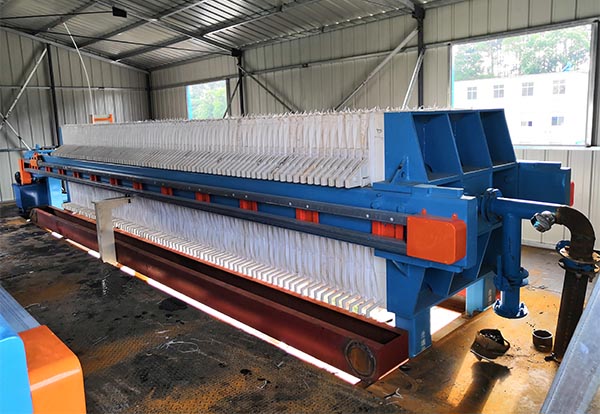A filter press is a piece of equipment used in various industries to separate solids from liquids. This article provides an in-depth explanation of what a filter press is, how it works, and the benefits of using one. Whether you are in the chemical, pharmaceutical, or mining industry, this guide will help you understand the role of a filter press in your operations.
Introduction to What is a Filter Press
A filter press is a machine used to separate solids from liquids. It is commonly used in a variety of industries, including chemical, pharmaceutical, mining, and wastewater treatment. The filter press operates by applying pressure to a slurry mixture, forcing the liquid through a filter medium and leaving the solids behind.
How a Filter Press Works
A filter press works by using a series of plates and frames to trap and separate solids from liquids. The slurry mixture is pumped into the filter press, where it is distributed evenly between the plates. The plates are then pressed together, applying pressure to the slurry mixture and forcing the liquid through the filter medium. The solids are left behind and can be removed from the filter press as a dry cake.
Benefits of Using a Filter Press
There are several benefits to using a filter press in various industries. First, a filter press can separate solids from liquids more efficiently than other methods, resulting in a higher-quality product. Second, a filter press is a cost-effective solution for separating solids from liquids, as it requires less energy and resources than other methods. Finally, a filter press can help reduce waste and improve environmental sustainability by removing solids from wastewater and other liquid streams.
.png)
Types of Filter Presses
There are several types of filter presses available, each with its unique features and benefits. Some common types of filter presses include:
- Plate and Frame Filter Press: This type of filter press is the most basic and consists of a series of plates and frames. It is commonly used for small-scale operations.
- Recessed Chamber Filter Press: This type of filter press has recessed plates that form chambers for the slurry mixture. It is commonly used in large-scale operations.
- Membrane Filter Press: This type of filter press uses a flexible membrane to compress the slurry mixture and force the liquid through the filter medium. It is commonly used in the pharmaceutical and chemical industries.
Applications of Filter Presses
Filter presses are used in a variety of applications in different industries. Here are some examples:
- Chemical Industry: Filter presses are used to remove impurities from chemical solutions and to separate solids from liquids.
- Pharmaceutical Industry: Filter presses are used to purify drug solutions and remove solids from drug suspensions.
- Mining Industry: Filter presses are used to separate solids from mining wastewater and to dewater tailings.
.jpg)
Conclusion
In conclusion, a filter press is a valuable piece of equipment for separating solids from liquids in various industries. By understanding the function and benefits of a filter press, you can make informed decisions about how to use this technology in your operations. Whether you are in the chemical, pharmaceutical, or mining industry, a filter press can help you improve product quality, reduce waste, and increase efficiency.

